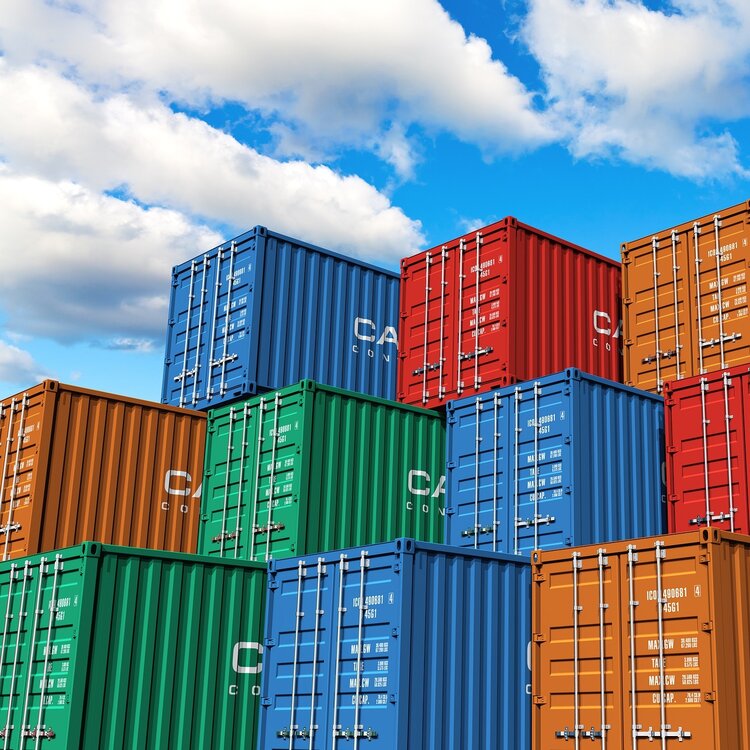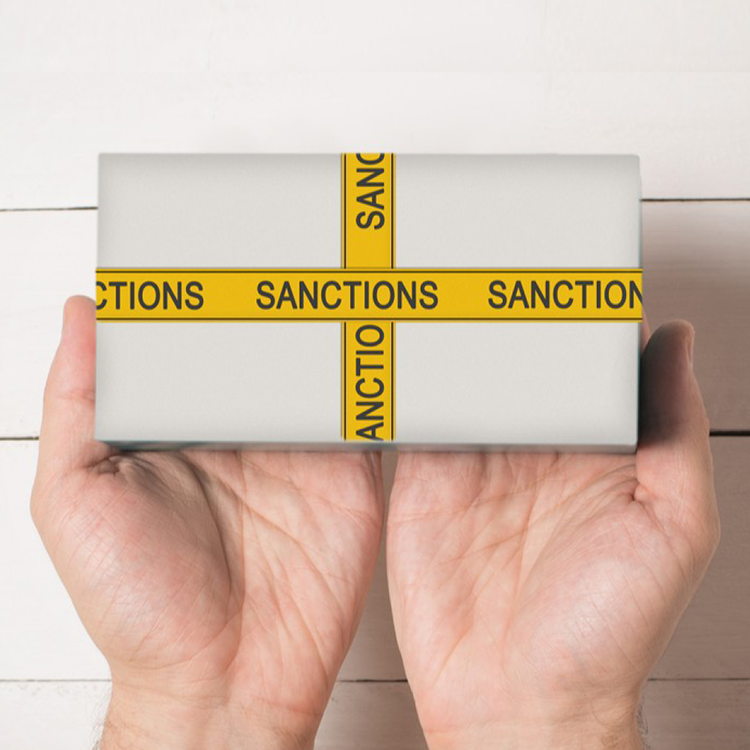Trade at the cross-roads
The Australian Government and others around the world are now certainly looking at the economic impact of Covid-19. The externalities from restrictive health measures to date are proving far costlier than initially perceived by authorities. What they do now, moving forward, will be crucial to the livelihoods of many, who are already struggling to put food on the table and worrying about their future.
Many businesses, including small and medium sized exporters, have already shut down permanently and others are close to doing the same. As the Australian Government considers an economic recovery package, it must seriously take account of trade as a priority area.
Two factors will determine the strength of our recovery—one, how quickly the pandemic is brought under control; two, the policy choices governments make.
Australia faces many challenges. We can encourage enterprises to grow quickly to take advantage of new markets, especially as domestic spending continues to contract, and help them to adapt to a changed world. This means governments must revisit their policy and regulatory approaches, including ensuring these are further simplified and supportive of business objectives.
We need to make businesses more internationally competitive and ensure those taking commercial risks are adequately supported and rewarded. We need to focus on maximising growth, efficiency and productivity and encourage workforce participation.
Australia is not alone. The rest of the world are also suffering. The World Bank estimates that the global economy will shrink by 5.2 per cent this year, resulting in a 3.6 per cent decline in per capita income and millions of people falling back into extreme poverty.
The COVID-19 pandemic is inflicting high and rising human costs worldwide, with over 26,198,095 people infected by the virus and over 865,467 deaths to date, we at the ECA are profoundly saddened by the loss of life that has occurred around the world. This health crisis has quickly evolved to become an economic crisis, with millions of people around the globe losing their jobs and income. In April 2020, concerning projections from both the IMF and the WTO predicted the global economy will contract by 3 per cent and that international trade will fall sharply in 2020. Even with an ‘optimistic’ scenario, WTO economists predict the volume of global merchandise trade will fall by a staggering 13 per cent compared to 2019.
These trade projections come on the backdrop of existing global trade tensions, volatility in commodity prices, and increasing protectionist sentiments. The imposition of restrictions to trade and freedom of movements, as well as other barriers – though necessary to respond to the current health crisis – may become more permanent protectionist measures that will prove disastrous in the longer term.
Let’s talk Australia
Australia is officially in its first recession for almost three decades, with the June quarter GDP numbers showing the economy went backwards by 7 per cent — the worst fall on record, and worse than most economists had predicted.
As a consequence of the biggest downturn since the Great Depression, Australia’s seasonally adjusted unemployment rate edged up to 7.5 per cent in July 2020, from 7.4 pef cent in June, and compared with market consensus of 7.8 per cent. This wasthe highest jobless rate since November 1998. According to Trading Economics, ‘Looking forward, we estimate unemployment rate in Australia to stand at 7.90 per cent in 12 months’ time.‘
Trade, a key sector of the Australian economy – representing 21 per cent of GDP – while having dropped, has kept the economy slightly afloat. And while recent ABS trade numbers are still encouraging, the numbers hide the real pain, especially among SME exporters.
Where we go from here
In Australia, we have seen our Government – both at the Federal and State level – taking early decisive action to protect Australians and the economy. We applaud key trade-focused initiatives like the International Freight Assistance Mechanism, the increased funding in the Export Market Development Grants (EMDG) and the initiative by Export Finance Australia. These are all critical to provide a lifeline to cash strapped businesses – many of them SMEs – to be able to remain afloat through this crisis.
Preliminary consultations with our members and the broader export community indicate that some key challenges our exporters are facing today relate mainly to:
- Freight and logistics – difficulties with availability, cancellation of most air freight routes and increased freight costs that further reduce already thin margins,
- Supply chain issues – with problems with sourcing, challenges managing the just-in-time system, cancellation of contracts and constant delays,
- Export documentation – the need to digitise all certificates and the many export-related documents have posed challenges, translating in goods and cargo being held and creating all sorts of issues across borders, which are hard to solve remotely,
- Trade barriers – which include several anti-dumping investigations by some of our trading partners on Australian exports – mainly Australian agricultural products. Whilst most of these investigations are being made by China, there are other countries also commencing investigations, which include Australia as a party in their claims.
We believe much more can be done, both at macro-Government level and at the firm level. For governments, there are ways to keep supporting our exporters including:
- Keeping trade lanes open and promoting avenues for freer trade,
- Ramping up multilateral collaboration and coordination between countries as the current restrictions ease, and communicate those measures to the trade community,
- Extending Government support in the freight and logistics area, to other exporters beyond perishables, and expand the discussions to include sea freight,
- Exploring the needs of the services export sector (e.g. education and VET) which have less visibility in the overall trade landscape.
For our exporters, some useful insights include:
- Take advantage of the current Government initiatives and seek support from industry bodies and relevant organisations to bring visibility to the issues that currently affect the Australian exporter,
- Start to rethink the geographic diversity of your supply chains and explore alternatives for sourcing, if available,
- Regroup to have a clear strategy to re-enter markets where recovery is on the horizon and where demand will be increasing.
While domestically we are still in a shutdown, some of our key trade partners are re-emerging from this crisis, and our exporters need to be ready to deliver and take advantage of these opportunities, especially as big export markets, such as the US and the EU remain in hibernation.
Economic recovery will require leadership in trade
As the voice of Australian exporters, the Export Council of Australia calls on the Government to lead on trade issues, here and internationally, and take decisive practical action. If economies do not start to open soon, many small and medium- sized businesses, family run/ owned business, SME exporters will shut down permanently.
The Export Council of Australia therefore encourages the Australian Government to develop and implement trade initiatives, including:
- convening key stakeholders to get transport and logistics systems operating at close to previous levels, ensuring routes are open and prices are brought down.
- facilitating the movement of goods across State borders if those goods are part of a global value chain.
- identifying and expediting negotiations of trade and travel bubbles with key economic partners.
- engaging with the finance industry to ensure exporters continue to have secure and affordable access to trade finance.
- enhancing funding assistance to SME exporters to reduce costs associated with exploring new markets and alternative supply chains, including expanding coverage of programmes such as Export Market Development Grants Scheme and SME Export Hubs programme.
- extending the innovative Seasonal Workers Program beyond its current pilot phase.
- increasing international development support to developing country trade partners, so that similar actions can be undertaken on their end. If our trade partners are not growing, we cannot do business with them.
Now more than ever, we all need to work together. We must abandon old excuses that constrain us from moving forward. We need to be flexible, innovative and bold.
The ECA looks forward to working constructively with the Australian Government and other stakeholders to assist our fellow Australians.
This article was first published and written for Shipping Australia’s Spring/Summer 2020 magazine
By DIANNE TIPPING, chair, and TAMARA OYARCE, National Trade Policy and Research manager, Export Council of Australia










